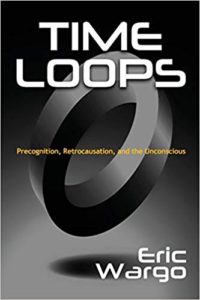The Vanishing
Everyone has those thoughts, but no one ever jumps. I told myself: “Imagine you’re jumping.” Is it predestined that I won’t jump? How can it be predestined that I won’t? So, to go against what is predestined, one must jump. I jumped. The fall was a holy event. I broke my left arm and lost 2 fingers. Why did I jump? A slight abnormality in my personality, imperceptible to those around me. You can find me listed in the medical encyclopedias under “Sociopath” in the new editions.
I watched George Sluizer’s The Vanishing (for the second time since it was released in the late 1980s) a few days after attending a pretty interesting symposium on trauma, PTSD, and false memories. This colored my viewing. I saw this amazing film as a meditation on trauma, and what we choose to do with our past.
In reconstructing his life around the wound of Saskia’s traumatic disappearance, Rex chooses not to go on living but to circle around this black hole. Is it to give it meaning? When pressed by a TV interviewer, Rex admits his quest has no hope. At bottom, though he describes it as quest for knowledge, to find out the truth of what happened, it is really, he admits, “an homage” to his lost Saskia.
The standard view of PTSD is that the constant return to the trauma (or the return of the trauma in dreams and reliving) is a project of slowly, painfully incorporating the event into one’s life story. In other words, a coming-to-terms. It is such a monumental, neverending project, in this view, because the trauma is such a foreign body, so undigestible.
But there is a counter to this, in a way a more parsimonious explanation. It may be that, on some level, the survivor chooses to make this thing the defining moment of his life—and thus the symptoms, the ongoing “inability to forget” is instead an active retelling of the life story with this trauma as a central defining feature. In other words, instead of returning to the trauma because we can’t live with it, we return to the trauma because we want to live with it, and in fact want to make it central to who we are. We don’t want to forget.
Why would someone want to live with a trauma, to base their lives on it?
For one thing, traumas make people into “survivors,” and there is something heroic in being a survivor. A trauma is like a backdrop a survivor may want to be seen against, because it provides an ego boost and legitimation. There are many direct and indirect psychological, social, and material benefits for being a survivor of a trauma. Ours is a society which places great stock on being a victim. Group as well as individual identities are built around victimhood and the memory of trauma. Patients in therapy are all too ready to redefine the imperfections of their upbringing as traumas or abuse.
Being a victim excuses us, shields us from blame and guilt for the imperfect lives we have led. It gives us a cart blanche. And being the survivor of something out of the ordinary is like creating a larger setting, a larger frame, a larger diorama in which to be viewed by the world and by ourselves.
We may not want the thing to have happened to us. Although what does that sentence even mean? The reality is that it did happen. In the absence of changing the past, we try to get back at least a bit of what was lost, exact a kind of repayment. Simple forgetting, simply going through a process of grieving and then “moving on,” wouldn’t allow us to do that, and would in fact “let the trauma get away with it.” The persistence of memory allows us to exact compensation. Freud called these things, the little perks we get from our self-destructive neuroses, “secondary benefits.”
Yet there is inherent bad faith in such a retelling of the life story around trauma. It emphasizes the pain—in Rex’s case, not only the pain of loss but also the pain of not knowing—and the ego hides behind this story. The story is “It’s so painful I can’t forget.” The truth hiding behind that story is, “I don’t want [the world] to forget that I endure/have endured this pain.” As such, the field of fantasy is important here, to transform the “made”—the way we have made the trauma and remake ourselves in its image—into the “found,” i.e. into ourselves as simple victims of something that happened to us, something we never wanted or asked for.
It may even be “perfectly true” that the pain is so extreme that it is impossible to forget. Yet there is always a clutching ego lurking behind it, snatching some piece of it back. It is a kind of unavoidable bad faith. What is its effect on us, this half- or demi-knowledge that we’re getting away with an extraction, that we are deriving selfish benefit from something bad that happened in the past?
Rex’s cover story, his alibi, that his is a quest for knowledge—one that he even admits is probably hopeless—is answered by the killer, who puts him to the test, indeed calls his bluff. It puts Rex in the same situation as the killer himself was in, on the balcony when he was 16. In effect, “fate” was calling his bluff. Our stance in relation to fate is one of bluff. Perhaps bluff is a better word than “bad faith.” It is a wager that, in effect, no one will ask to see our cards. It is founded on the knowledge that this bluff is something we all—at least, those of us with consciences—engage in; our trust that our bluff won’t be called rests on the shared nature of our guilt. The killer is able to call his bluff because, unlike other people, he is a sociopath. A sociopath is someone whose relationship to fate is honest. As such, a sociopath is the only truly ethical human being. A nonsociopathic ethics is one of inconsistency and deception.
A normal/nonsociopathic person preserves a layer of ambiguity between himself and his “true desires” or “true motives.” Such a person will not go into the wish-granting room at the end of Tarkovsky’s The Stalker, for instance. It is for fear of becoming like the legendary stalker “D’ikobraz,” who did go in and found himself a rich man instead of finding his son cured of a fatal illness. For the same reason, the stalker in the film will not go in, even though his daughter is a mutant. We don’t want to know ourselves truly, because we fear to find ourselves in the situation faced by Winston Smith in Room 101—that is, face to face with our falsehood. The killer in The Vanishing is like O’Brien in 1984: creating a situation that effectively calls his victim’s bluff.
So by definition, to be human is to live a fantasy. Sartre’s vision of living in absolute freedom, without bad faith, is only fully possible for a sociopath. We need that distance from ourselves, because we are not what we are and this is unbearable to a “moral” being. Let us be clear: It is not the content of Iago’s statement, “I am not what I am,” that marks him a sociopath. It is his capability of saying it, of honestly and forthrightly owning up to it, that does so. He is rather like the killer in The Vanishing, in that his attitude to himself is cold, clinical, detached, curious, and matter of fact. The moral man, in contrast, requires believing he is what he is, even in face of evidence to the contrary. He requires fantasy, in other words, and thus bad faith. Even if I am cleverly, intellectually, able to articulate the idea of my own nonidentity with myself, I am really unable to touch the core of it; I retain my distance and act “as if” I were consistent with myself and my ideals; as a “moral man” I must maintain the bluff, and thus do I fly in the face of the real.
Or, another way to put this might be this: We are all sociopaths—our substrate, the ground of our being, is one of sociopathy—pure freedom in Sartre’s terms, or I suppose what Nietzsche would call “will to power.” What distinguishes a healthy moral individual is giving himself over to a lie, to submit or subject himself, to treat himself as an object so as to keep away from direct irrevocable knowledge about this essential condition of his being. Thus one’s being becomes a lie, even an affront, and we live in fantasy to forget that we have lied and that we are a lie.
What is a trauma? It is a kind of alibi. It is something objectively true and real which nevertheless serves as a mask for our true intentions, our true motives, our true desires. A trauma is a safe and secure cover story for one’s guilt. We thank heavens for an opportunity for such a cover story. Trauma provides us with the necessary cover story to go on living.



